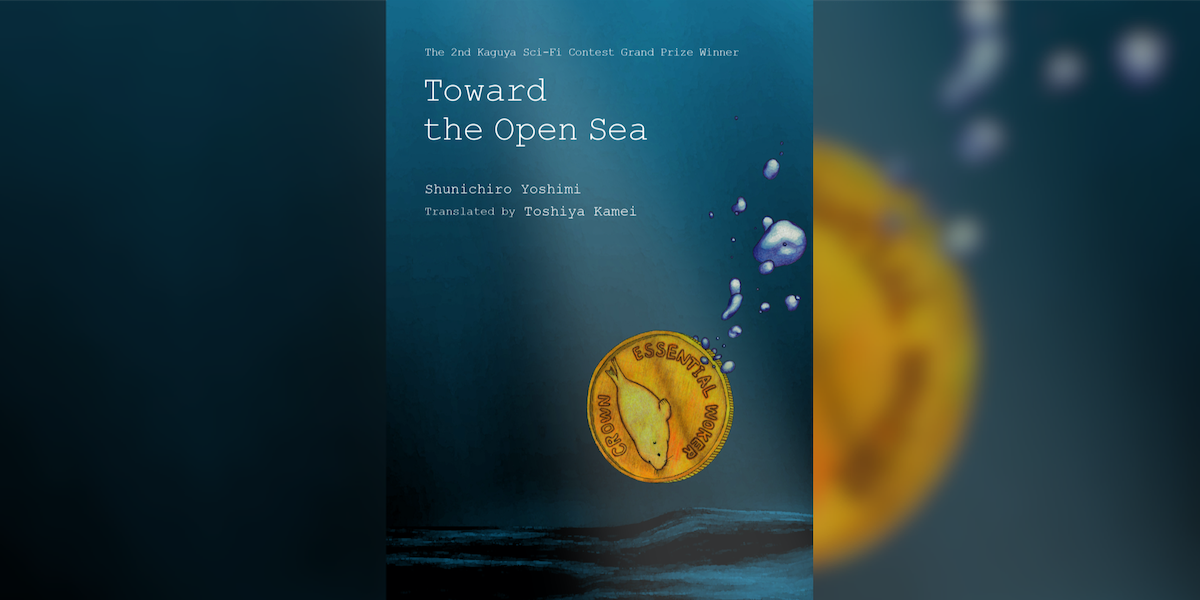Kaguya SF Contest, grand prize winning story
Toward the Open Sea by Shunichiro Yoshimi was awarded the grand prize at the 2nd Kaguya SF Contest, held by VG+, a Japanese website about all things SF. Between June and August 2021, 381 stories on the theme of “colors of the Future” were submitted.
Toward the Open Sea was translated into English and Chinese as part of winning the grand prize. The English version was translated by Toshiya Kamei. The Chinese version was translated by 田田 (Tian Tian/Den Den).
Illustration: Kanata Inoue / Cover Design: Harumi Asano
Toward the Open Sea
By Shunichiro Yoshimi
Translated by Toshiya Kamei
